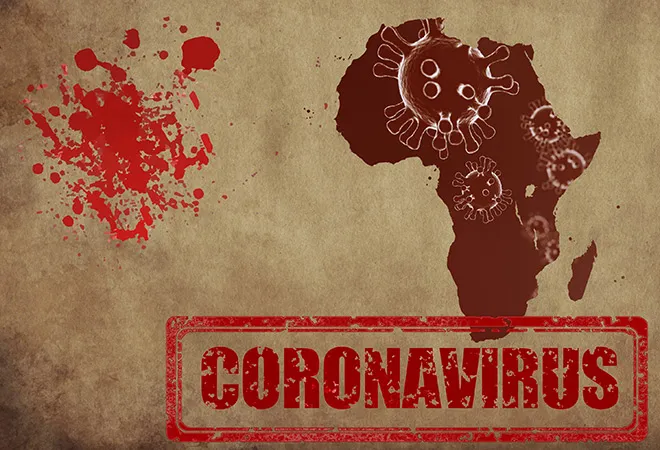
The covid-19 pandemic which is relatively new to mankind, has continued to ravage, destabilize and disrupt global economy, many African countries have shut down in efforts to contain the spread of this invisible enemy of mankind that has at last crept into the most populous nation Nigeria.
In the midst of confusion and sleepless nights for Medical Scientists and the National Health Service frontline workers to find a vaccine or cure to the virus which originated from Wuhan, China. No country can at the moment boast of its immunity. A few countries without the first case, their economies are already bleeding and feeling the pinch and their index case is only a matter of when.
Beyond the bickering and conspiracy between China and United States over who fueled the seeming biowarfare that has engulfed the rest of the world, poor response to this emergency has been the reason for its uncontrollable spread. The communist state’s denial of the health crisis is why more than 40,000 have died with over 800,000 confirmed cases globally.
Africa had about a month’s window period to learn valuable lessons and prepare for the deadly scourge. Before the coronavirus spreads in 40 of 54 countries in Africa, the World Health Organization (WHO) had warned the continent to prepare for the worst and “wake up” to increasing threat. As seriously as that sounds, most African leaders were not bothered, defying advice from stakeholders on proactive preventive measures until some countries in the continent began to record increased cases of Covid-19.
For instance, figures from the WHO chart, shows that Nigeria, the giant of Africa is the sixth African country with the highest number of COVID-19 cases. Nigeria’s case of coronavirus rose astronomically from one to 151 spreading across the length and breadth of about 11 states and the federal capital territory, in about six weeks after it recorded its index case on 27 February with a potential of rising even more.
The pandemic has paralyzed economic and socio- religious activities in the west African country as the Nigerian President Muhammadu Buhari’s belated directive backed by a newly signed Covid-19 Regulation law 2020 declared the virus as a “dangerous infectious disease” compelling more than 14,000 000 people residing in two states and the federal capital territory with increased confirmed cases to stay indoors. State governments have also imposed stiff and stringent measures to contain the spread of the pandemic.
But do not take a deep breath yet as the rather applaudable effort of the government is perceived by some critics as “filling a basket with water and hoping to close the lid”. The consequence of executive negligence bites harder than the scary pandemic in most African countries including Nigeria. Years of blatant failure from the Nigerian government to fix the country’s decaying health sector before the emergence of coronavirus has brought to fore the sham been paraded as health system.
Worrisome still is the humanitarian crisis as a result of Boko Haram conflict in the northeast which has internally displaced more than 1.8 million people, leaving over seven million in need of urgent life-saving assistance including food, healthcare and water. This category of “victims of insurgency” are at high risk of Covid-19 mortality. Though steps have been taken to cushion the effect of coronavirus in the IDP camps, experts believe much more needs to be done.
The west African country is in a state of confusion, indicative of the fact that in years to come, the Covid-19 pandemic will be remembered as an experience. It evokes thought leaders and net-worth individuals in Nigeria as well as other African countries that the healthcare system of any country is one that should not be handled with a “pinch of salt” by government at all levels and the private sector.
The new paradigm as occasioned by the deadly pandemic should be intentional to invest in healthcare, research and vaccine production instead of being import-dependent and an unperturbed medical tourist.
The views expressed above belong to the author(s). ORF research and analyses now available on Telegram! Click here to access our curated content — blogs, longforms and interviews.




 PREV
PREV


